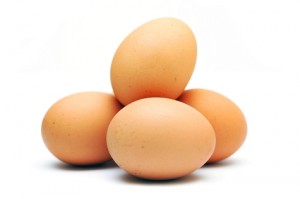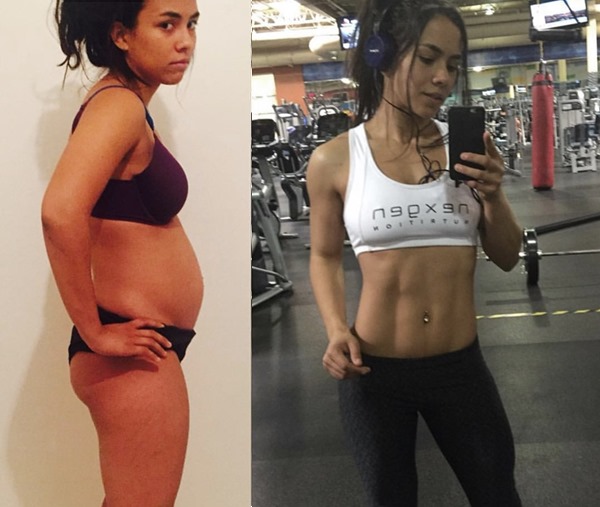
Show me a bodybuilder who is afraid of eating a lot of protein and I will show you a bodybuilder who is afraid of success.
Protein is the key element in your physique building bag of tricks, the difference between taking baby steps in your bodybuilding career and making giant leaps. Before making protein the main ingredient of your bodybuilding diet, check out the following helpful tips on how to use protein under various circumstances. By applying these simple guidelines to your plan of action, you will be able to get huge, yet hold on to your mass when dieting.
1. Rely on Protein for Anabolism
It is a no brainer: Total protein intake and total caloric intake will determine whether or not an anabolic (growth) state can exist. If you eat a lot of calories, carbs and fats without eating enough protein, you can kiss muscle growth goodbye.
2. Meet Minimum Protein Requirements
You must consume at least one gram (g) of protein per pound of bodyweight daily. A 200 pound bodybuilder needs a minimum of 200g of protein per day.
3. Be Aware of Maximum Protein Guidelines
 This tip applies to hardgainers with fast metabolic rates. If you are blessed – or cursed – with a metabolism that forces you to burn protein for fuel, then increase daily protein intake to 1.5g per pound of bodyweight. Under these conditions, a 200 pound bodybuilder would consume 300g of protein per day.
This tip applies to hardgainers with fast metabolic rates. If you are blessed – or cursed – with a metabolism that forces you to burn protein for fuel, then increase daily protein intake to 1.5g per pound of bodyweight. Under these conditions, a 200 pound bodybuilder would consume 300g of protein per day.
4. Consume Complementary Carbs
Carbs are not complete anathema to a bodybuilder in pursuit of mass. Take in 2g of carbs per pound of bodyweight daily, unless you’re dieting strictly. This will provide your body with sufficient carb stores to draw on for energy, instead of tapping into protein stores that should be reserved for muscle building.
5. Eat More Protein When You Diet
To get ripped to the max, you have to cut way back on dietary fat while reducing carb intake. This double whammy forces the body to burn more protein as fuel, which will put your muscle tissue at risk. Dieting bodybuilders should increase protein intake to 1.5g per pound of bodyweight to compensate for the reduction in carbohydrate.
6. Count Protein Grams
When calculating total grams of protein, include only complete sources, such as meat, fish and eggs. Disregard incomplete sources like oats, rice, bread and other grains.
7. Ignore the RDA Advice on Protein Intake
The Recommended Dietary Allowances (RDA) for protein are inapplicable to bodybuilders, as are studies recommending .75g per pound of bodyweight. Such figures are typically calculated by experimenting with university students – a.k.a. recreational bodybuilders – and are well below the requirements for hardcore bodybuilders in training.
8. Use Protein Powders
 I recommend protein powders that include fast acting whey, which is naturally dense in branched chain amino acids; slower acting casein, and immune system enhancing soy, which is also high in glutamine.. These three sources combined will yield a better net increase in mass than a single source powder such as casein alone. As a rule of thumb, try to get 50% of your protein intake from powders in order to accelerate absorption into muscle tissue.
I recommend protein powders that include fast acting whey, which is naturally dense in branched chain amino acids; slower acting casein, and immune system enhancing soy, which is also high in glutamine.. These three sources combined will yield a better net increase in mass than a single source powder such as casein alone. As a rule of thumb, try to get 50% of your protein intake from powders in order to accelerate absorption into muscle tissue.
9. Keep It Simple
The overcomplication of bodybuilding nutrition is ridiculous. Here is a simple edict to follow in pursuit of mass: Fix you protein intake at a minimum of 1g per pound of bodyweight, with a max of 1.5g for those of you with a fast metabolism or who are dieting like crazy. Then eat at least 2g of carbs per pound of bodyweight, and avoid all excess fats that are not already contained in your protein sources. If your bodyweight does not increase, add more carbs to the mix.
That is it! No magic bullets for mass; instead manipulation of protein and other nutrients offers just enough ammo for gaining size.
Author: Chris Aceto
Website: http://www.procardnutrition.com/










